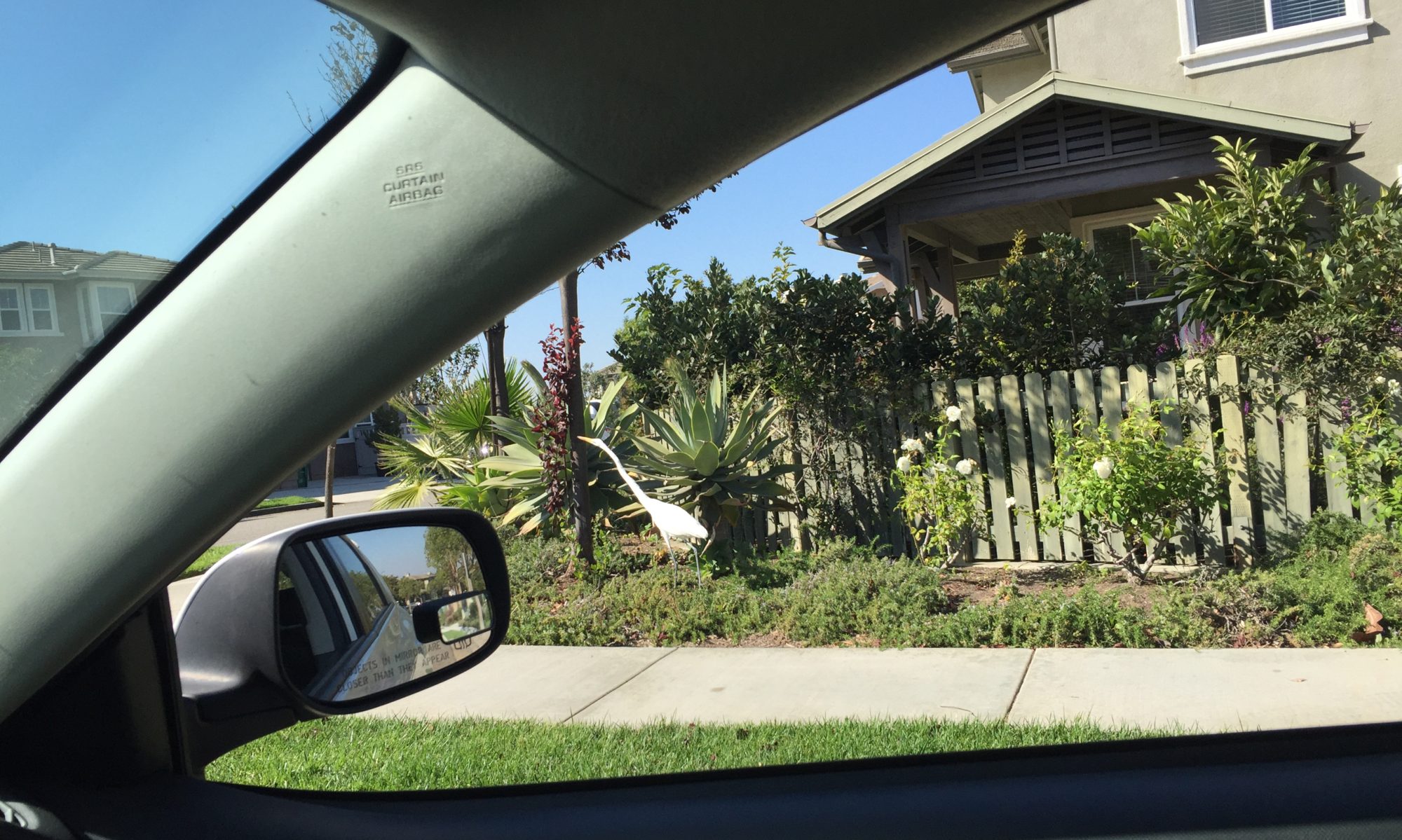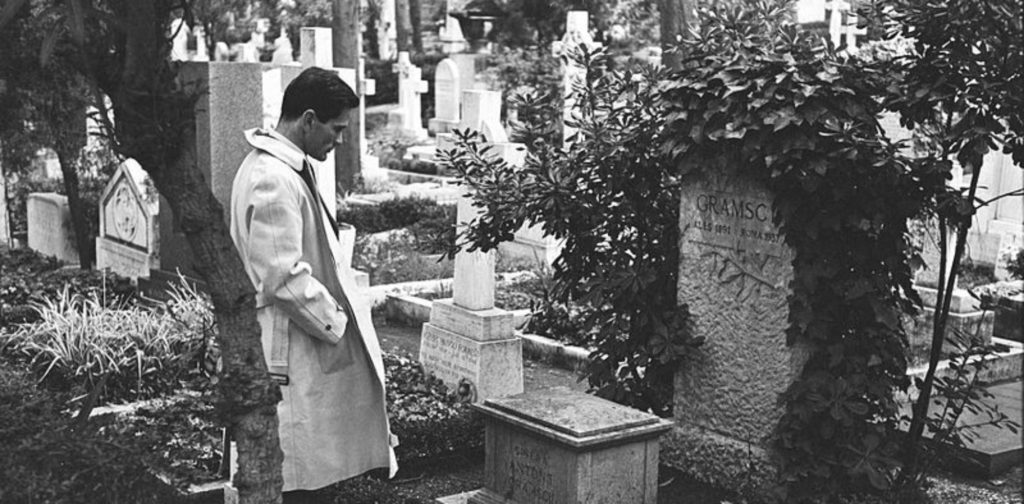Abbiamo aspettato insieme un pullman che non passava mai.
– Mario Pozzi
Gramsci’s Ashes (Le ceneri di Gramsci) is the most famous of Pier Paolo Pasolini’s poems. Written in 1954 but not published until 1957, when it appeared in a collection with the same name.
Though in many ways inaptly, it was recognized as a counterpart for Allan Ginsberg’s Howl (1956). But Gramsci’s Ashes was a “summation of where Italy stood just then”, expressing “anger and lament for the disastrous postwar life (it seemed a premature death) of the ideals of the Resistance, the confrontation between what the generation born into Fascism had dreamed for and what the first postwar years had brought” (Barth David Schwartz, Pasolini Requiem, p. 273).
Hence its appeal to someone like myself, who was close enough to the fifties and sixties to feel vicerally such anger and lament for the failed politics of those times, especially given the rise now of what could be called “neo-Fascism”, at the very least the rise of national-chauvinist politics in the so-called West.
Enough said. These highlights are intended as launching pads into the poem and the world it represents.
The full almost 300 line poem along with the original Italian is available at …
There is an excellent more or less literal translation with copious commentary by Stephen Sartarelli (The Selected Poetry of Pier Paolo Pasolini, U of Chicago Press, 2014). Other versions can also be found on the internet.
*
I may be dating myself, indeed “classing” myself by embracing this poem so passionately. At the turn of this century after several months in Tuscany during which I escaped by train to Rome at any sign of depression, I made an abortive attempt at the opening lines of this poem. I loved the opening imagery, largely preserved in my current version, but even back then I knew I’d need to put a real version of my own into terza rima, the high classic form which goes back to Dante. I was not poet enough to do it, I said to myself. So I stashed it away in the archives and thought of it sadly whenever I crossed it in any occasional harrowing of my files. I don’t want to imply that I have become poet enough to take up this challenge again. That is for others to decide. But something else changed.
More to come …
*
Gramsci’s Ashes: Text and Original
Posted notes in reading order: How Unlike May (I, 1-8) An Ingenuous Fight (I, 8-15) You, Young Hero (I, 16-25) Once Again You Are in Dreaded Detention (1, 25-34)
*
1
How unlike May, this polluted pall of air
made even murkier in the murk
of a foreign cemetery plot where
dazzling shards of light mark
off the slobbering sky from calcified
yellow façades set in an immense arc
hiding the blue hills of Lazio, hanging beside
the curves of the Tiber ….
*
Pier Paolo Pasolini is the Protestant Cemetery in Rome where, “[t]orn between incipient hope and an old distrust” (3,8), he has gone to pay respects to Antonio Gramsci, founder of the Italian Communist Party.
After the latter was to all extents and purposes murdered by the Fascist regime, “bleak Catholic logic” (3, 6 ) required he be interred in the non-Catholic Cimitero Acattolico, where Keats and Shelley were also buried, in the then working class neighborhood of Testaccio.
It is a rainy even chilly late afternoon in May. As the clouds break, glare reflects off the attic windows of the surrounding buildings, already in the early 50s showing signs of corrosive acidic air pollution. Though not visible from within, Pasolini sets the scene by referring to the distant “blue hills of Lazio” and the curves of the Tiber almost as if from overhead, a device to which he returns, especially in the Vth section.
This is terza rima rhyme (ABA BCB CDC, etc), practically invented by Dante. My use of murk in the second line announces that slant rhymes (with mark and arc) will be allowed. This was authorized by Pasolini himself, who not only used them at will, but also allowed occasional truncated lines for dramatic effect. Much much more on this later.
Note the colours grey, yellow, blue.
*
1
Non è di maggio questa impura aria
che il buio giardino straniero
fa ancora più buio, o l’abbaglia
con cieche schiarite … questo cielo
di bave sopra gli attici giallini
che in semicerchi immensi fanno velo
alle curve del Tevere, ai turchini
monti del Lazio…
*
This elegiac May
displaced like us, malcontent, dissatisfied,
casts a deathly, peaceful aura of decay
over crumbling ramparts. In this twilight
appears through the gloom of gray
rubble the spectre of an ingenuous fight
to make human life over, lost decades
of frustrating silence, rotting blight ….
*
Pasolini does not say it here, but he knew by heart Rimbaud’s call to “change life”, as well the Marxist rejoinder “transform the world”, a dilemma which shaped his thoughts and those of many on the Left. It is not only Gramsci who was buried at Testaccio, the mount of shards (testae). Commodity fetishism had begun to overwhelm the dreams of spring-like revolutionary change which, born out of resistance to Fascism, was leading to a disaster evoked by the rubble (I, 13) of the gloomy cemetery. Hope, like the month of May, has been displaced, replaced by a November-like murkiness, leaving the ingenuous (or naive) Left “malcontent, dissatisfied” (I, 9).
Line 12, ending in gray, is short two feet; there are only three accented syllables in the usual iambic pentameter with which I have replaced Pasolini’s eleven syllable verse, standard in terza rima. In any event, Pasolini used the form loosely, “letting the characteristic interlocking rhyme scheme disappear sometimes or be carried by off-rhymes [slant rhymes] and apocopated rhymes” (Sartarelli, Selected Poetry of PPP, p. 456).
… Spande una mortale
pace, disamorata come i nostri destini,
tra le vecchie muraglie l’autunnale
maggio. In esso c’è il grigiore del mondo;
la fine del decennio in cui appare
tra le macerie finito il profondo
e ingenuo sforzo di rifare la vita;
il silenzio, fradicio e infecondo .…
You, young hero, lived when delusion
was rife, an Italian May, one which imbues
life with passions, be they grave illusion,
like our robust fathers’ feckless views.
With a hand already snarled, emaciated,
not as father but brother, you laid out new
ideals which elucidate this impasse, fated
for you in death as for ourselves, as dead
now as you in this dank antiquated
boneyard….
*
Pasolini’ choice of terza rima is but one feature which harkens back to Dante. One might in fact think of his Gramsci’s Ashes as a mini-version of The Inferno, since the poet is addressing the dead or at least one of them in a dialogue which raises retrospective political and ethical issues.
Pasolini’s ambiguous relationship with his own father is evoked in “our robust fathers’ feckless views” but the plural genitive also makes it clear that he has in mind the whole preceding generation, which fell under the sway of fascism.
Gramsci’s “emaciated hand” refers to his pitiful state during his incarceration and in the few days left for him after his release. But Gramsci had suffered from tuberculosis of the spine, Pott disease, since his youth. His growth was stunted and he was never more than 5 ft tall.
The “impasse” in question is in the first instance political, hence Pasolini’s remarks that Gramsci’s writing had elucidated it. So this “dead end” applies to the living as well as the dead. Though a voluntarist, who believed in action and hence political choice, Pasolini also acknowledges that at the present time we are “fated” to this political impasse.
Imbues / views / new is an example of the kind of slant or apocopated triplet rhyme of which the poet also availed himself when it would work best.
*
Once again you are in dreaded
detention, not with virile inmates enclosed
but with aristocrats, in whom ennui is inbred.
The sole presence beyond theirs is composed
of faint clinks on anvils which drift in
from the forges of Testaccio, juxtaposed
with Vespers floating over heaps of tin
junk, delapidated hovels fallen apart,
beside which an urchin finds within
the words of a ribald song, as the clouds part.
*
Gramsci died just days after his release from political prison. Now his ashes are confined in a cemetery the majority of whose inhabitants are bourgeois or aristocrats. At least in prison he was surrounded by “viril inmates”. As if to recall the isolation from the those whom he sided with politically, Pasolini notes the clinks of hammer on anvils drifting in from the nearby forges of Testaccio, at that time working class. Church bells also ring in the air, reminding us the time of day.
Among the hovels and piles of refuge outside the enclaves a street urchin sings the words of a ribald song, a counterpart to the poet himself. There is a momentary cleft in the clouds through which the dying rays of the afternoon sun pass.
Characteristically of terza rima has Pasolini practiced it, a long section is concluded with a dramatically abbreviated stanza. The part / apart rhyme is not picked up in the next section. Nor do we expect it to be.
*
Non puoi,
lo vedi?, che riposare in questo sito
estraneo, ancora confinato. Noia
patrizia ti è intorno. E, sbiadito,
solo ti giunge qualche colpo d’incudine
dalle officine di Testaccio, sopito
nel vespro: tra misere tettoie, nudi
mucchi di latta, ferrivecchi, dove
cantando vizioso un garzone già chiude
la sua giornata, mentre intorno spiove.

